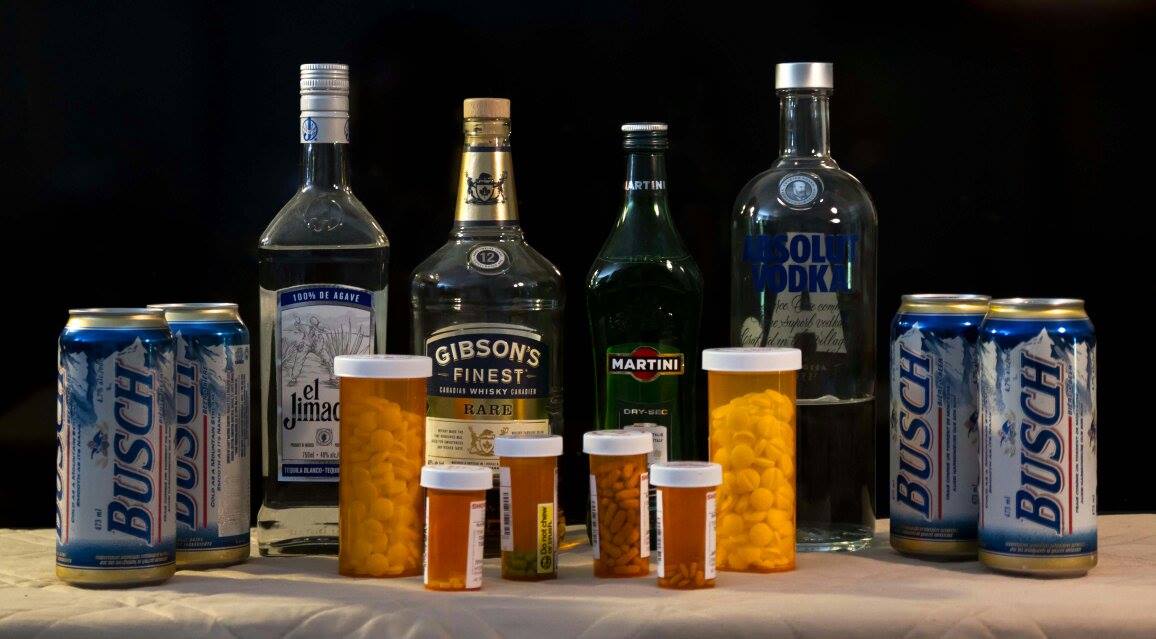Aleve and Alcohol, Aleve Alcohol Interaction, What is Aleve

Aleve and Alcohol speaks to Aleve Alcohol interaction, what is Aleve and Aleve side effects.
Alevegeneric namenaproxenalso other brand names Anaprox, EC-Naprosyn, Naprelan, Naprosyn and Midol extended relief. Aleve is part of a family of drugs known as nonsteroidal anti-inflammatory drugs which work by reducing hormones in the body that cause inflammation and pain.
It is advised not to consume alcohol while using Aleve.
At this time the medical community defines moderate consumption of alcohol as no more than two drinks per day and no more than 14 drinks per week. Anything more than that is considered an unhealthy dependency on alcohol that may have adverse social, family and health consequences.
If a person drinks only once or twice a week but drinks on the same days each week and more than two drinks this is considered as an alcohol dependency.
If a person binge drinks at any time during the week this is also considered as alcoholism.
Some consider alcoholism as a disease while others consider it an addiction which is the result of personal choice and character fault. This school of thought blames the alcoholism on life style choices.
Personally I consider alcoholism a genetic tendency as I have seen families of alcoholics even when they live far apart. These unfortunate people are probably dependent on alcohol from the first drink.
When alcohol interacts with prescription over the counter drugs it usually results in negative health effects most especially liver damage as the main organ affected.
It is suggested that before taking this or any other drug you have a frank and honest discussion with your physician as to your drinking habits. This may be difficult as many alcoholics are in a state of denial as to their drinking habits.
I have also noticed that many alcoholics are not subject to the morning after illness that most of us suffer through when we drink too much. Severe alcoholics usually find if they feel “shakey” in the morning, a drink will make them feel more normal.
It is helpful to treat pain caused by arthritis, ankylosing spondylitis, tendinitis, bursitis, gout or menstrual cramps. Do not drink alcohol when using Aleve as it can increase the risk of bleeding of the stomach and intestines.
Consult with your physician concerning a dose adjustment if you have a history of heart attack, stroke, blood clot, heart disease, congestive heart failure, high blood pressure, stomach ulcers or bleeding, liver or kidney disease, asthma, polyps in your nose, bleeding or a blood clotting disorder or if you smoke.
Side Effects
Less serious side effects are upset stomach, mild heartburn, stomach pain, diarrhea, constipation, bloating, gas, dizziness, headache, nervousness, skin itching, rash, blurred vision or ringing in your ears.If these occur call your physician for advice.
Serious side effects are chest pain, weakness, shortness of breath, slurred speech, problems with vision or balance, black, bloody or tarry stools, coughing up blood or granular vomit, swelling or rapid weight gain, urinating less or not at all, nausea, stomach pain, low fever, loss of appetite, dark urine, clay colored stools, jaundice, fever, sore throat, headache, severe blistering, peeling, red skin rash, bruising, severe tingling, numbness, pain, muscle weakness, neck stiffness, chills, sensitivity to light, purple spots on the skin or convulsions.If these occur get emergency medical help.
Aleve and Alcohol Aleve and Alcohol
This site serves as an information source only and does not dispense medical advice or any other kind of advice. If you are seeking medical advice you are advised to consult your own physician.
Return from Aleve and Alcohol to home page.
Hard copy and E book for sale. What's Killing You and What You Can Do About It. Click here.
Hard copy and E book for sale. Introduction to Building Mechanical Systems. Click here.